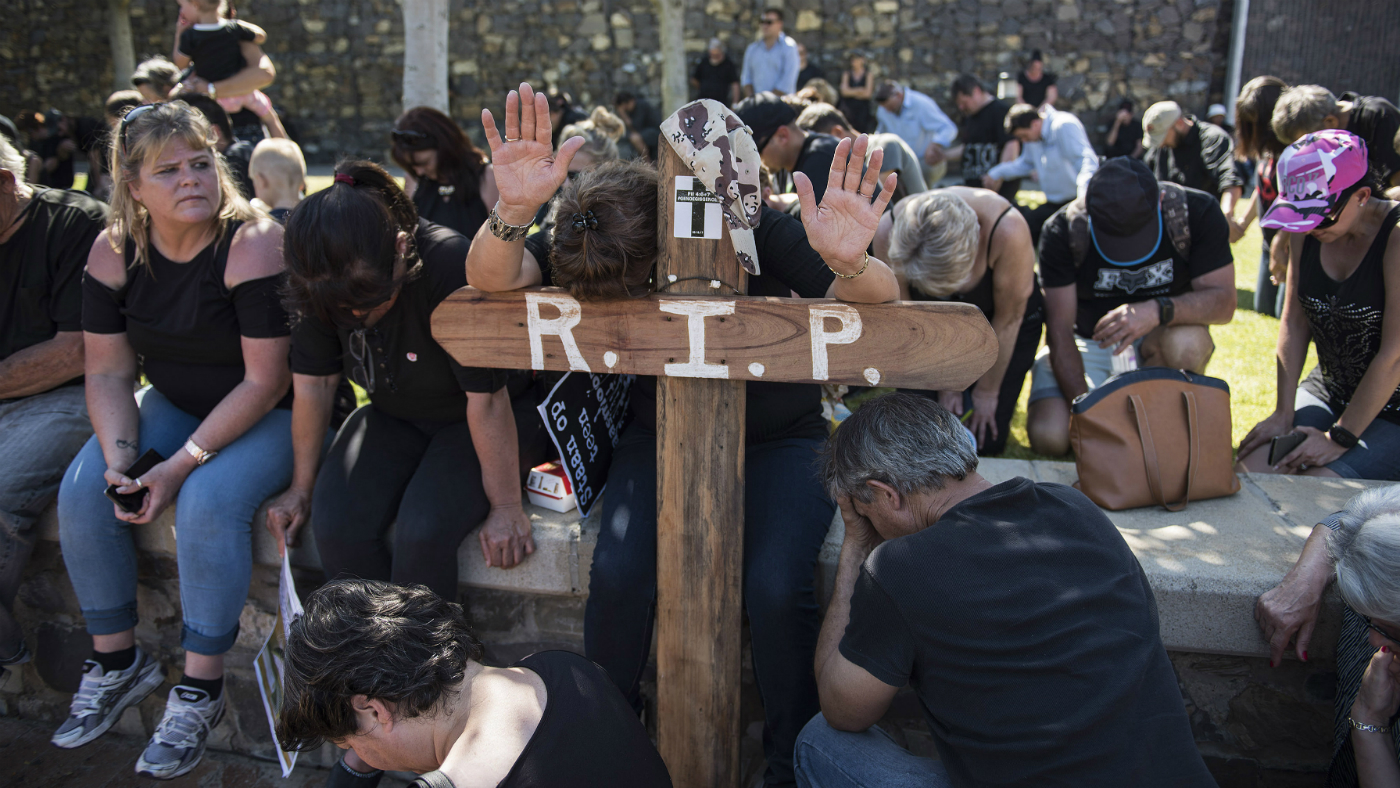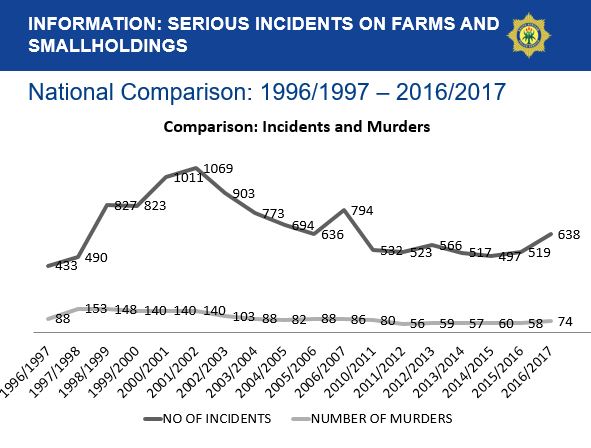Fact Check: The truth about farm murders in South Africa
Protesters claim nation’s farmers are three times more likely to be killed than police

A free daily email with the biggest news stories of the day – and the best features from TheWeek.com
You are now subscribed
Your newsletter sign-up was successful
Thousands of white farmers took to the streets throughout South Africa last month to protest a spate of deadly attacks in rural communities.
Protesters claim that farmers are much more likely to be murdered than the average South African - and that many of the brutal attacks are racially motivated.
There is a “popular narrative that the country’s white farming minority is under siege”, says the Mail and Guardian.
The Week
Escape your echo chamber. Get the facts behind the news, plus analysis from multiple perspectives.

Sign up for The Week's Free Newsletters
From our morning news briefing to a weekly Good News Newsletter, get the best of The Week delivered directly to your inbox.
From our morning news briefing to a weekly Good News Newsletter, get the best of The Week delivered directly to your inbox.
The high rate of murders on farms has been used by many “as evidence that South Africa’s white minority is facing victimisation, oppression, and possibly genocide”, the newspaper adds.
But what is the real story behind this highly politicised debate?
What do protesters say?
The so-called Black Monday demonstrations, on 30 October, were backed by AfriForum, a controversial lobby group that promotes the rights of South Africa’s Afrikaner population.
A free daily email with the biggest news stories of the day – and the best features from TheWeek.com
The organisation puts the farm murder rate at 156 per 100,000 people – more than four times the national average.
Speaking to protesters in Pretoria last week, the group’s head of community safety, Ian Cameron, also claimed that white farmers are three times more likely to be murdered than police officers in South Africa.
“Farmers have by far the most dangerous job of all people in this country at the moment,” he said. “We cannot allow this to continue the way it is.”
The Freedom Front Plus, a right-wing Afrikaans party, has long argued that farm killings “can justifiably be viewed as genocide” and has accused the police of suppressing official figures that show a “drastic increase” in farm attacks and murders.
What do others say?
The South African Institute of Race Relations says it “does not support the view that a politically inspired genocide of white farmers is under way”. CEO Frans Cronje warns that those who claim otherwise “risk being dismissed as a lunatic fringe” and distracting from “the very real plight” of farmers.
In a 2014 report on farm attacks, the South African Human Rights Commission said it was “concerned” that evidence submitted by AfriForum was “solely focused on farm owners and their families” and ignored the broader farming community, including black employees.
What are the facts?
“To calculate a farm murder rate, you need two numbers: the number of people who were murdered in farm attacks and the number of people who work on, live on or visit farms and smallholdings,” says independent fact-checking organisation Africa Check.
According to the South African Police Service (SAPS), there were 74 farm murders in 2016-17 - up by 28% from the previous year, and the highest number since 2010-11.
However, there is no breakdown by race, and it is unclear whether the victims were farmers, workers, family members or visitors.
What’s more, the police database on farm murders is a “live” system - meaning the statistics derived from it are subject to change if new information on cases emerges, Major-General Sally de Beer, head of communication at SAPS, told Africa Check earlier this year.

Credit: SAPS
These statistics are “broadly in line” with figures collected by the Transvaal Agricultural Union, says BBC News. “But a rise in the number of farm murders doesn’t tell us anything about whether farmers are more at risk than average South African,” the website adds.
Because there are no official figures for the total number of people who work on, live on, or visit farms and smallholding, it is not possible to calculate the murder rate accurately.
It’s also unclear whether white farmers are more at risk than black farmers - or more at risk than the population at large, BBC News reports, because “we simply don’t know what proportion of people on South Africa’s farms is white”.
So who’s right?
The number of farm murders has increased in recent years, but there are no reliable statistics to back up claims that white farmers are more likely to be killed than either black farmers or the general population.